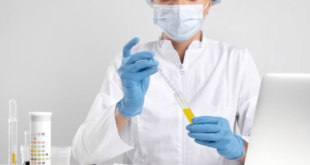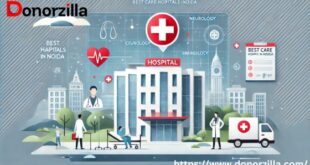Diet is a key component in the management of stomach cancer, and Lenalidomide 10mg Tablet for the treatment of cancer can support stomach cancer and health. Making informed choices about diet can improve the effectiveness of treatment, and quality of life, and possibly impact cancer outcomes. This article provides practical dietary advice on which foods to eat and which to avoid for stomach cancer patients to get better outcomes.
Understanding the role of diet in stomach cancer
Diet can affect stomach sounds in different ways. Nutrition is crucial for maintaining overall health, especially during cancer treatment. It helps manage side effects and may influence cancer progression. A diet rich in nutrient-dense foods can boost the immune system and support recovery.
For patients undergoing treatment, Lenalidomide 25 is commonly prescribed to help manage certain types of cancers, including multiple myeloma. Pairing the right medication with a well-balanced diet can enhance overall well-being and improve treatment outcomes.
The Impact of Nutritional Changes on Stomach Cancer
Supporting Immune System
A healthy diet is important for maintaining a strong immune system. This is vital in fighting cancer and preventing infection.
Manage Treatment Side Effects
Radiation therapy and chemotherapy can have side effects like nausea, loss of appetite, and difficulty swallowing. These symptoms can be managed with a tailored diet and medications like Lenalidomide 15 mg, which supports overall treatment by aiding immune function and reducing complications.
Maintaining weight and strength
Maintaining weight and strength is crucial for recovery and treatment.
Include these foods for better outcomes.
Incorporating certain foods into your diet can improve the outcome of stomach cancer treatment. Choose nutrient-dense foods and provide vitamins, minerals, antioxidants, and essential nutrients.
1. Fruits and Vegetables
Fruits and vegetables contain vitamins, minerals, and antioxidants which can help support immunity and general health. To maximize your nutrient intake, choose a wide variety of colorful fruits and vegetables.
Leafy Greens:
Spinach, Swiss chard, and kale are rich in vitamins A, C, and K as well as fiber.
Berries:
Antioxidants and vitamins are abundant in blueberries, strawberries, and raspberries.
Cruciferous Vegetables:
Broccoli and Brussels sprouts may contain compounds with anti-cancer properties.
2. Whole Grains
Whole grains are rich in fiber and essential nutrients that promote digestive health.
Oats:
Fiber is good for digestion and is rich in fiber.
Brown Rice
This is a good source of B vitamins and fiber.
Quinoa:
This product contains protein, fiber, and essential amino acids.
3. Lean Proteins
Protein is necessary for the maintenance of muscle mass as well as supporting the body when undergoing treatment.
Fish:
Omega-3 fatty acids found in salmon and trout may help to reduce inflammation.
Poultry:
Lean protein sources include chicken and turkey.
Legumes:
Chickpeas, beans, and lentils are all plant-based sources of protein and fiber.
4. Healthy Fats
Healthy fats can support your overall health, provide energy, and even support cell function.
Avocado:
Rich in monounsaturated fatty acids and vitamins.
Nuts & Seeds
Healthy fats are found in almonds, flaxseeds, chia seeds, and walnuts. Olive oil is a good source of monounsaturated fatty acids and antioxidants.
5. Hydration
Hydration is essential for health, and to manage the side effects of treatment.
Water:
Drink plenty of water every day.
Herbal teas
Ginger or peppermint can be used to help nausea and digestion.
Foods To Avoid For Better Results
Certain foods may negatively affect stomach cancer outcomes, or worsen treatment side effects. To maintain overall health and well-being, it is important to limit or avoid these foods.
1. Red Meats and Processed Meats
Preservatives, chemicals, and preservatives in processed and red meats may be harmful.
Processed meats
Often, deli meats, sages, and bacon are high in sodium.
Red Meats
Consuming large quantities of beef and pork can increase the risk of cancer.
2. High-Sodium Foods
Excessive sodium can cause fluid retention and increase blood pressure.
Salty Snacks
Salty snacks like chips, pretzels, and salted almonds can contain a lot of sodium.
Canned Foods
When possible, choose low-sodium and no-sodium products.
3. Sugary Foods and Drinks
Sugar consumption can cause weight gain, and hurt overall health.
Sugary Drinks
Sugared juices, sodas, and energy drinks can cause weight gain, and they have very little nutritional value.
Desserts:
Sugar and fat added to cakes, cookies, and pastries are often high.
4. Fried and Fatty Foods
Fatty and fried foods are difficult to digest and can worsen symptoms.
Fried Foods
French fries, chicken fried in oil, and doughnuts are all high in calories and unhealthy fats.
Fatty Cuts of Meat
Avoid eating fatty meats such as beef and pork. They can be difficult to digest.
5. Alcoholic and Caffeinated Drinks
Caffeine and alcohol can cause digestive irritation and interfere with the treatment.
Alcohol:
Avoid alcohol as it can cause dehydration or interfere with some treatments.
Caffeinated Drinks
Caffeine can worsen symptoms such as nausea and anxiety.
Conclusion
By avoiding foods that may exacerbate symptoms or impact outcomes, individuals can enhance their quality of life and support their treatment goals. Individuals can improve their quality of living and achieve their treatment goals by consuming nutrient-dense food and avoiding foods that can exacerbate symptoms.
 Our Gateway to Insightful Blogging Exploring Ideas, Sharing Knowledge, Inspiring Minds
Our Gateway to Insightful Blogging Exploring Ideas, Sharing Knowledge, Inspiring Minds



